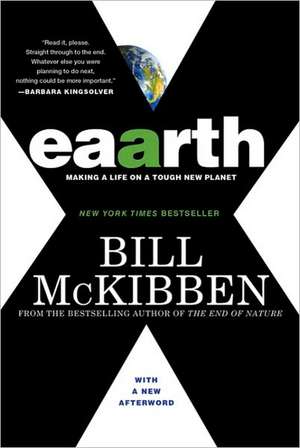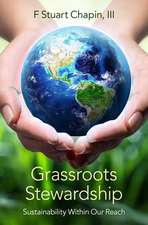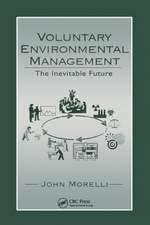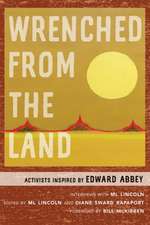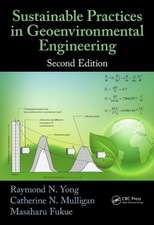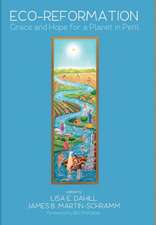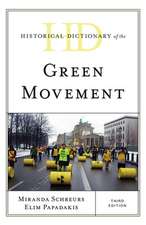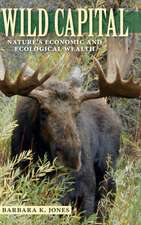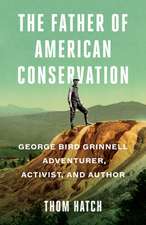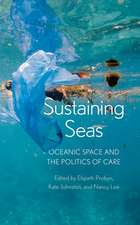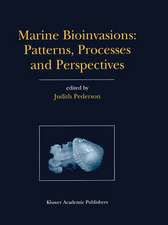Eaarth: Making a Life on a Tough New Planet
Autor Bill McKibbenen Limba Engleză Paperback – 28 feb 2011
"Read it, please. Straight through to the end. Whatever else you were planning to do next, nothing could be more important." Barbara Kingsolver
Twenty years ago, with "The End of Nature," Bill McKibben offered one of the earliest warnings about global warming. Those warnings went mostly unheeded; now, he insists, we need to acknowledge that we've waited too long, and that massive change is not only unavoidable but already under way. Our old familiar globe is suddenly melting, drying, acidifying, flooding, and burning in ways that no human has ever seen. We've created, in very short order, a new planet, still recognizable but fundamentally different. We may as well call it Eaarth.
That new planet is filled with new binds and traps. A changing world costs large sums to defend think of the money that went to repair New Orleans, or the trillions it will take to transform our energy systems. But the endless economic growth that could underwrite such largesse depends on the stable planet we've managed to damage and degrade. We can't rely on old habits any longer.
Our hope depends, McKibben argues, on scaling back on building the kind of societies and economies that can hunker down, concentrate on essentials, and create the type of community (in the neighborhood, but also on the Internet) that will allow us to weather trouble on an unprecedented scale. Change fundamental change is our best hope on a planet suddenly and violently out of balance."
Preț: 108.22 lei
Nou
20.71€ • 22.51$ • 17.41£
Carte tipărită la comandă
Livrare economică 21 aprilie-05 mai
Specificații
ISBN-10: 0312541198
Pagini: 288
Dimensiuni: 137 x 208 x 20 mm
Greutate: 0.3 kg
Ediția:Revised
Editura: St. Martin's Griffin
Descriere
Twenty years ago, with "The End of Nature," Bill McKibben offered one of the earliest warnings about global warming. Those warnings went mostly unheeded; now, he insists, we need to acknowledge that we've waited too long, and that massive change is not only unavoidable but already under way. Our old familiar globe is suddenly melting, drying, acidifying, flooding, and burning in ways that no human has ever seen. We've created, in very short order, a new planet, still recognizable but fundamentally different. We may as well call it Eaarth.
That new planet is filled with new binds and traps. A changing world costs large sums to defend--think of the money that went to repair New Orleans, or the trillions it will take to transform our energy systems. But the endless economic growth that could underwrite such largesse depends on the stable planet we've managed to damage and degrade. We can't rely on old habits any longer.
Our hope depends, McKibben argues, on scaling back--on building the kind of societies and economies that can hunker down, concentrate on essentials, and create the type of community (in the neighborhood, but also on the Internet) that will allow us to weather trouble on an unprecedented scale. Change--fundamental change--is our best hope on a planet suddenly and violently out of balance.
Notă biografică
Recenzii
"A passionate appeal. . . . McKibben's engaging and persuasive book will add greatly to the sense of urgency. It will add realism to the case for strong adaptation to the changes that our past and current actions are bringing to our natural world."--The New York Review of Books
"Bill McKibben may be the world's best green journalist . . . What really sets Eaarth apart from other green books is McKibben's prescription for survival. This won't be just a matter of replacing a few lightbulbs; McKibben is calling for a more local existence lived 'lightly, carefully, gently.' It's a future unimaginable to most of us--but it may be the only way to survive."--Time
"Bill McKibben [is] probably the nation's leading environmentalist... Important strands of environmental thought merge in McKibben's new book, making for some truly scary reading and prompting urgent questions about the nature of the environmental catastrophe at hand... [Eaarth] offers a view of economic growth not typically encountered in mainstream discussion, with all its moral dimensions unmasked and clarified... The urgency of his moral advocacy demands attention."--The Boston Globe
"Superbly written . . . McKibben is at his best when offering an elegant tour of what is already going wrong and likely to get even worse. . . . Eaarth is a manifesto for radical measures."--The National Interest
"A valuable slice of acid-tongued reality."--San Francisco Chronicle
"If one book can help, this is it."--Winnipeg Free Press
"This book must be read and his message must be understood clearly in Congress and in the streets. Indeed, throughout
